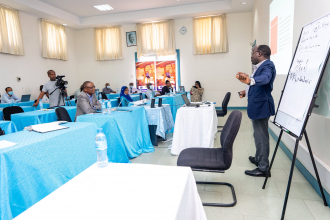In Tanzania, and across much of Africa, the potential impact of public procurement on sustainable growth of the local timber industry is not well understood. This is due to limited awareness of the local timber industry by government agencies responsible for public procurement, and vice versa. As a result, this existing gap hinders the opportunity for timber-based Small and Medium Enterprises (SMEs) to access the public procurement market to grow sustainably, meet their operational costs, develop effective business skills, or purchase new technology for improved productivity.


